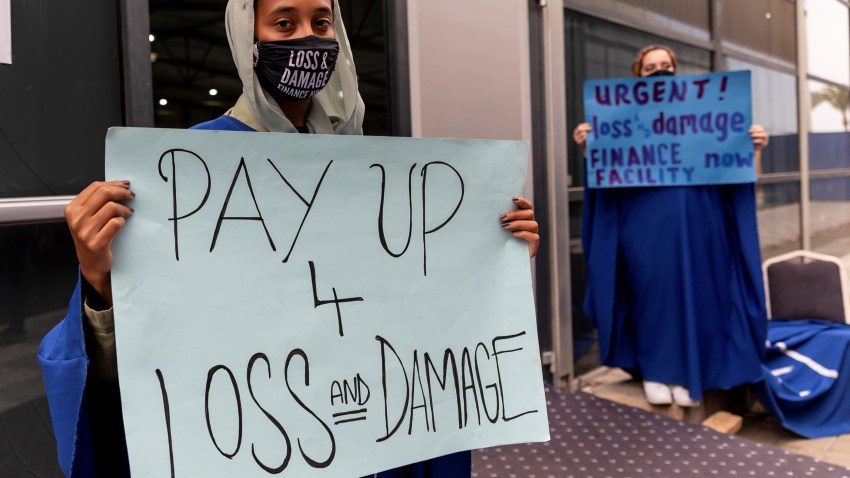SHARM EL-SHEIKH, Egypt—Delegates at the United Nations COP27 Climate Change Summit in Sharm el-Sheikh, Egypt, remain locked in intensive negotiations to steer the world toward reducing carbon emissions and scaling up financing for developing countries devastated by climate change. As the conference enters its final days, all eyes are on delegations from rich, industrialized countries like the U.S. and the European Union’s member states to see if they will continue to resist demands from developing countries in the Global South for “loss and damage” payments, which would compensate them for the impacts of climate change that cannot be avoided by either mitigation or adaptation.
European delegates at COP27 are skeptical that an agreement to create a loss and damage fund will be reached this year, and believe that it is more likely to be rolled out at next year’s COP28 gathering in Dubai. But delegates from 130 countries, which successfully pushed at the beginning of the conference last week for a discussion of loss and damage financing to be formally included in the COP27 agenda, are insisting on reaching a final agreement here in Sharm el-Sheikh. In practice, this means that the conference’s talks, which were initially scheduled to conclude tomorrow, will likely extend into Saturday and possibly even Sunday.
Egypt, which holds the rotating presidency of COP27, pushed for a fund to compensate developing countries for climate disasters caused by carbon emissions that historically have mostly come from rich, industrialized countries, particularly ones in the Global North. But Washington and its European allies have thrown cold water on the suggestion that rich nations should be mandated to pay developing countries for climate-related damage. “It’s a well-known fact that the United States and many other countries will not establish ... some sort of legal structure that is tied to compensation or liability. That’s just not happening,” U.S. climate envoy John Kerry said Saturday at a press conference.

